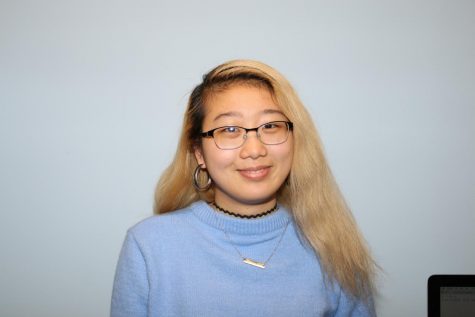Truss-worthy civil engineering professor wins teaching award
March 1, 2019
As an undergraduate student at Case Western Reserve University, Katie Wheaton tried to find a path for herself. Now as the professor of Civil Engineering 160, Surveying and Computer Graphics, Wheaton is often the first face to welcome civil engineering students into the department, following these bewildered students throughout their undergraduate years by teaching upper-level courses as well. As thanks, students are honoring her with the Srinivasa P. Gutti Memorial Teaching Award.
Wheaton enjoys teaching surveying because it is the first course in the civil engineering curriculum. She takes this chance to engage students in the community, providing a tour of the American Society of Civil Engineers Lounge, her office and the labs within the first week of classes.
“When I meet these students [in the fall of their sophomore year], they are already acclimated to Case Western Reserve University, but their success depends on their connection to the department through professors, advisors and peers,” said Wheaton.
The nature of surveying also helps foster a relationship among students and between her and students. The course is tactile, and surveying labs necessitate teamwork and create a collaborative environment similar to fieldwork in industry.
“Professor Wheaton is very passionate about the material she teaches and her caring and engaging nature makes her class very informative,” said second-year civil engineering student Brian Lin.
Surveying and Computer Graphics and Civil Engineering 323, Structural Design II, bookend the department curriculum and by the spring of their last year, Wheaton has already developed a personal connection with students.
Structural design is also her specialty because she worked in industry at both Thornton-Tomasetti-Cutts and Osborn Engineering. Her last project at Osborn was designing a natatorium and gymnasium for Gilmour Academy, a high school her cousins now attend. The steel project had an architectural focus and Wheaton ended up working with architects to design a triangular truss structure to ensure beauty as well as functionality.
Wheaton admits she never pictured herself as a professor.
“I consulted for Osborn for a while after my eldest daughter was born because I wanted some part-time work,” she said. “But it was feast or famine, with a lot of work one week, and nothing the next.” She sought advice from a professor over lunch, explaining her desire for a fulfilling engineering career and time with family. The civil engineering department just happened to be short an adjunct professor, and she soon found herself teaching at her alma mater.
These days, rather than working a 9-to-5 job at a design firm, Wheaton spends her time improving curriculums so students can absorb material better and avoid cramming. She tries to structure class for maximum retention and asks students to do course evaluations to see what worked and what didn’t.
In addition to civil engineering students at CWRU, Wheaton also influences students miles away, as an instructor in the EP program at Johns Hopkins University, teaching online classes to working professionals since 2015.
When asked if she had regrets about leaving the industry, Wheaton confidently answers she did not.
“We all have professional and personal aspirations and teaching is the best match for both,” she said. “I want to help students visualize life after school.”
After earning her undergraduate degree, Wheaton worked in Washington D.C. before getting her master’s at Lehigh University and encourages students to do the same.
“There just isn’t enough time in undergrad to fully engage in material,” she said.
Reflecting on her time at CWRU, Wheaton thinks CWRU had been more graduate school-oriented and is happy that the university is paying more attention to engaging undergraduate students and improving their experiences.
“There was no Uptown then,” she said. “The campus now is a destination for everything: extracurriculars, leisure and academics.”
She praises the university’s consideration of a program designed to introduce first-year students to all engineering disciplines, projected to come into effect in 2020. A pilot program is already underway and students collaborate on projects such as building a water filter.
When asked about discrimination in the field, Wheaton asserts she has had only positive experiences with peers and mentors, both male and female. This positivity is mirrored in interactions students have with her.
“Professor Wheaton was very good at keeping an 8:25 a.m. class attentive and interesting,” second-year civil engineering student Max Hewit said. “The labs in her class were fundamental in helping me secure a civil engineering internship.”
Other students share this sentiment, and Wheaton was honored with the teaching award this year. She accepted the award at this year’s Engineer’s Week Reception on Feb. 28.



